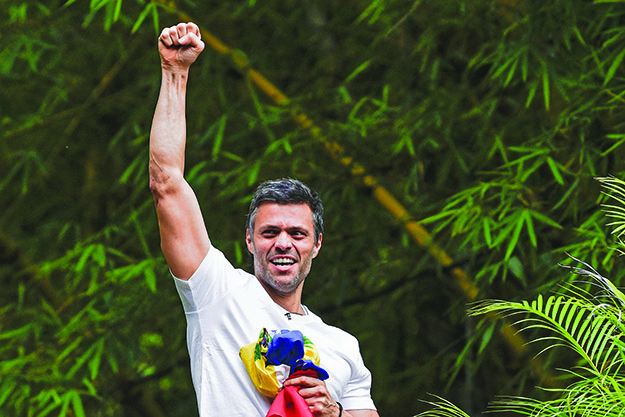This article is adapted from AQ’s print issue on Venezuela after Maduro.

Julio Borges, 48, congressman
Justice First
Before serving as National Assembly president from 2017 to 2018, Borges was known to Venezuelans for hearing civil cases on the 1990s courtroom reality show Justice for Everyone. He’s now leading a push for international condemnation of Maduro and greater restrictions on the government’s access to foreign cash.
 Leopoldo López, 46, former mayor
Leopoldo López, 46, former mayor
Popular Will
The most prominent political prisoner in Venezuela, López was granted house arrest last August after spending three years in jail. A Harvard-trained economist and the former mayor of Caracas’ upscale Chacao district, López attempted a run for president in 2012 before stepping aside and endorsing Henrique Capriles.
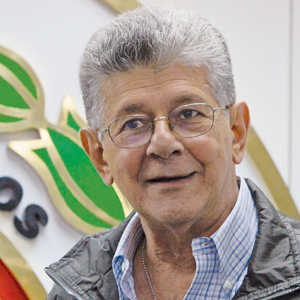 Henry Ramos Allup, 74, congressman
Henry Ramos Allup, 74, congressman
Democratic Action
A veteran of pre-Chávez politics, Ramos Allup allowed his party to run in regional elections in 2017 that were widely seen as illegitimate, and said he would run for president in 2018 under certain conditions. Other opposition figures, in particular Capriles, accuse him of maneuvering to ensure his and his party’s political survival.
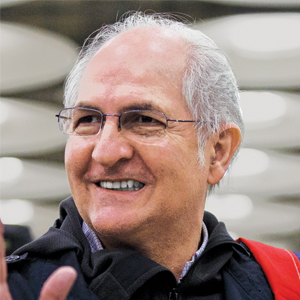 Antonio Ledezma, 62, former mayor
Antonio Ledezma, 62, former mayor
Fearless People’s Alliance
Ledezma had served as mayor of Caracas for seven years when he was arrested in 2015 on charges of conspiracy against the government. He fled house arrest, escaped to Colombia, and now lives in Spain. Seen within the opposition as a hardliner, Ledezma has called for an international humanitarian intervention to oust Maduro.
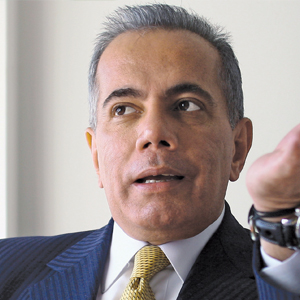 Manuel Rosales, 65, former governor
Manuel Rosales, 65, former governor
A New Era
The former governor of Venezuela’s most populous state, Rosales lost a presidential bid to Chávez in 2006 and fled the country in 2008. He returned in 2015, spent a year in prison, and was accused by members of the opposition of cozying up to Maduro after participating in the 2017 elections. He has since taken part in opposition negotiations with the government in the Dominican Republic.
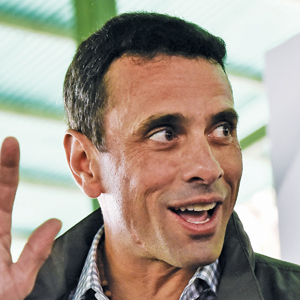 Henrique Capriles, 47, former governor
Henrique Capriles, 47, former governor
Justice First
Capriles lost the 2013 presidential election to Maduro by just 1.6 percent of votes. He was then governor of Miranda, and in 2017 the government banned him from holding office again for 15 years. Sometimes criticized as a moderate, Capriles left the MUD coalition in October after four elected governors from Ramos Allup’s party were sworn in by the Maduro-backed National Constituent Assembly of 2017; Capriles said he won’t rejoin the MUD as long as Ramos Allup is a member.
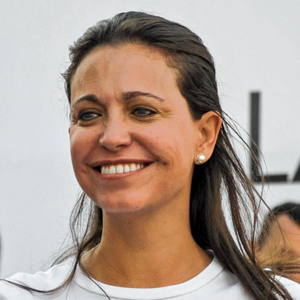 María Corina Machado, 50, former congresswoman
María Corina Machado, 50, former congresswoman
Come Venezuela
A fixture of international forums, Machado has been a particular target of chavista ire since her actions during the failed 2002 coup against Hugo Chávez. A former presidential candidate, she was stripped of her assembly seat in 2014 and Maduro has since expressed his desire to charge her with treason.
 Henri Falcón, 56, former governor
Henri Falcón, 56, former governor
Progressive Advance
A former military officer and chavista governor who renounced the ruling party in 2010, Falcón is set to run against Maduro in May’s election. He has low support among members of the MUD opposition coalition, who favor boycotting the election because they see it as a sham.
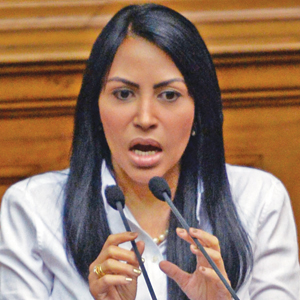 Delsa Solórzano, 46, congresswoman
Delsa Solórzano, 46, congresswoman
A New Era
A deputy in the National Assembly from the state surrounding Caracas, Solórzano is a former professor and public prosecutor specializing in human rights. As president of the Assembly’s domestic policy commission, she has become one of the most vocal critics of human rights abuses under Maduro.
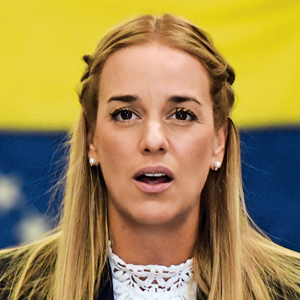 Lilian Tintori, 39, human rights activist
Lilian Tintori, 39, human rights activist
A former television personality, Tintori became a human rights activist following the imprisonment of her husband, Leopoldo López. Tintori has campaigned abroad for humanitarian aid and support of the country’s 200-plus political prisoners. She met with Donald Trump in the Oval Office in February 2017.


